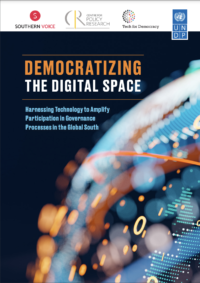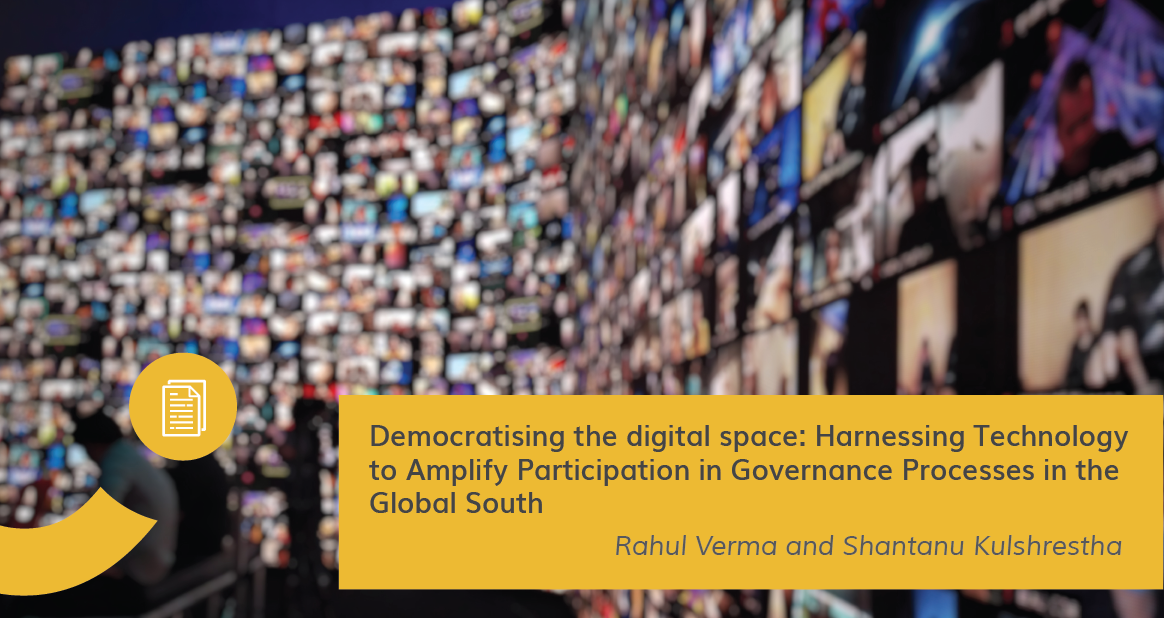What governance trends emerged during the pandemic, and what are their implications for the achievement of the SDGs?
 This background paper explores the intersection of digitalization and democracy in the Global South. It illustrates the impact this interaction has had on people’s lives and elevates these distinct perspectives and lessons to a global conversation. The use of technology in the Global South has the potential to transform the nature of the state for the better by streamlining governance administration and operations, facilitating democratization, ensuring government accountability and promoting transparency. However, to reap the benefits of digitalization it is essential to address the lack of knowledge and capacity along with inadequate regulatory frameworks. Rapidly changing technologies from social media to digital infrastructure have had wide-ranging and understudied. Harnessing the potential of technology to support democracy and human rights instead of working against them is one of the key challenges the world now faces. However, as long as sizable discrepancies in access, usage and regulation across the globe continue to exist, this process will be incomplete. In this context, it is important to recognize that digitalization is not a policy goal in itself, but rather a process to improve democracy, governance and citizen engagement. Harnessing the power of digital technologies to amplify meaningful participation is not only linked to life online, but also contributes to citizen engagement offline. Apart from bettering inclusion, access, infrastructure and digital architecture, states and businesses need to recognize the right of citizens, especially those from marginalized communities, to feel safe online and to be represented in decision-making.
This background paper explores the intersection of digitalization and democracy in the Global South. It illustrates the impact this interaction has had on people’s lives and elevates these distinct perspectives and lessons to a global conversation. The use of technology in the Global South has the potential to transform the nature of the state for the better by streamlining governance administration and operations, facilitating democratization, ensuring government accountability and promoting transparency. However, to reap the benefits of digitalization it is essential to address the lack of knowledge and capacity along with inadequate regulatory frameworks. Rapidly changing technologies from social media to digital infrastructure have had wide-ranging and understudied. Harnessing the potential of technology to support democracy and human rights instead of working against them is one of the key challenges the world now faces. However, as long as sizable discrepancies in access, usage and regulation across the globe continue to exist, this process will be incomplete. In this context, it is important to recognize that digitalization is not a policy goal in itself, but rather a process to improve democracy, governance and citizen engagement. Harnessing the power of digital technologies to amplify meaningful participation is not only linked to life online, but also contributes to citizen engagement offline. Apart from bettering inclusion, access, infrastructure and digital architecture, states and businesses need to recognize the right of citizens, especially those from marginalized communities, to feel safe online and to be represented in decision-making.


